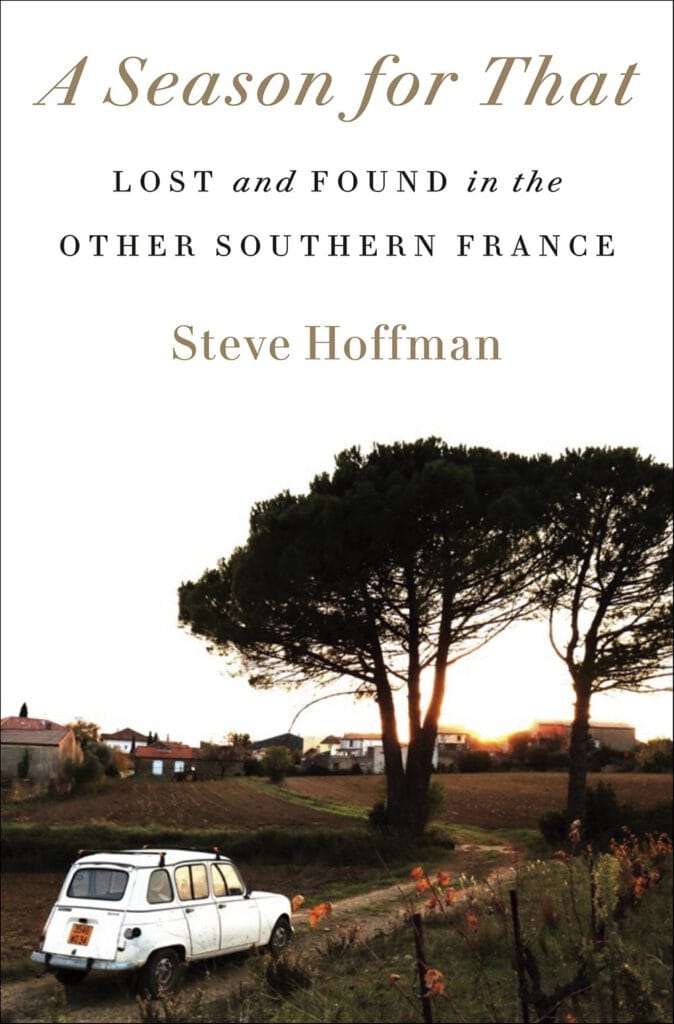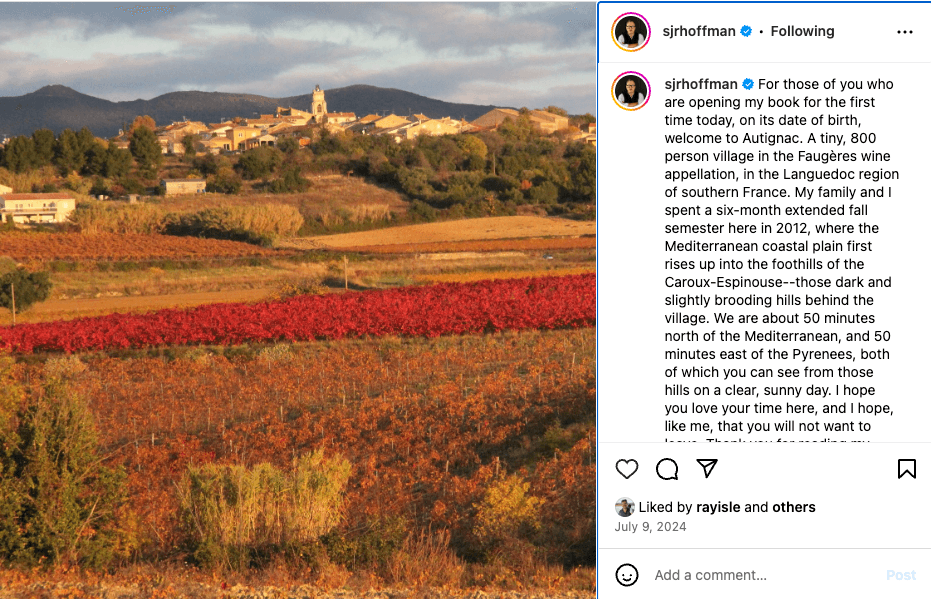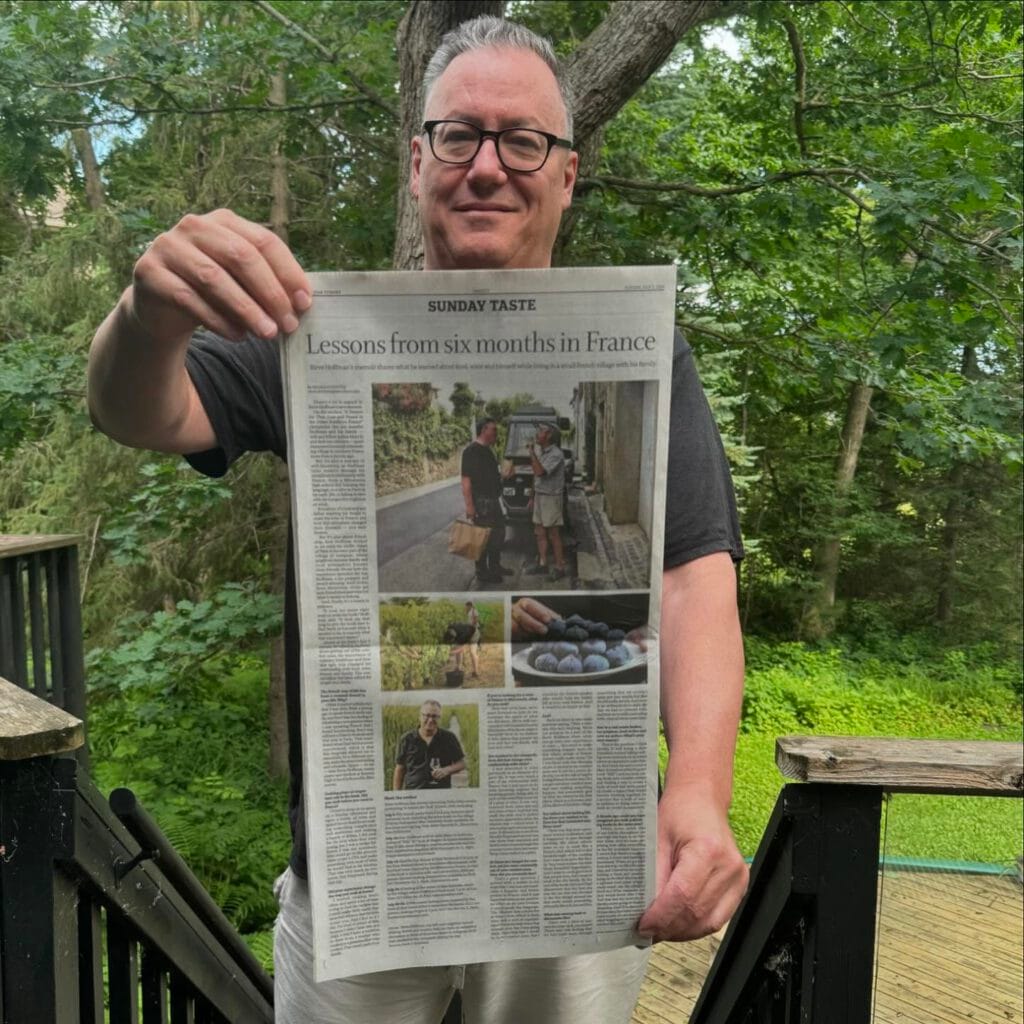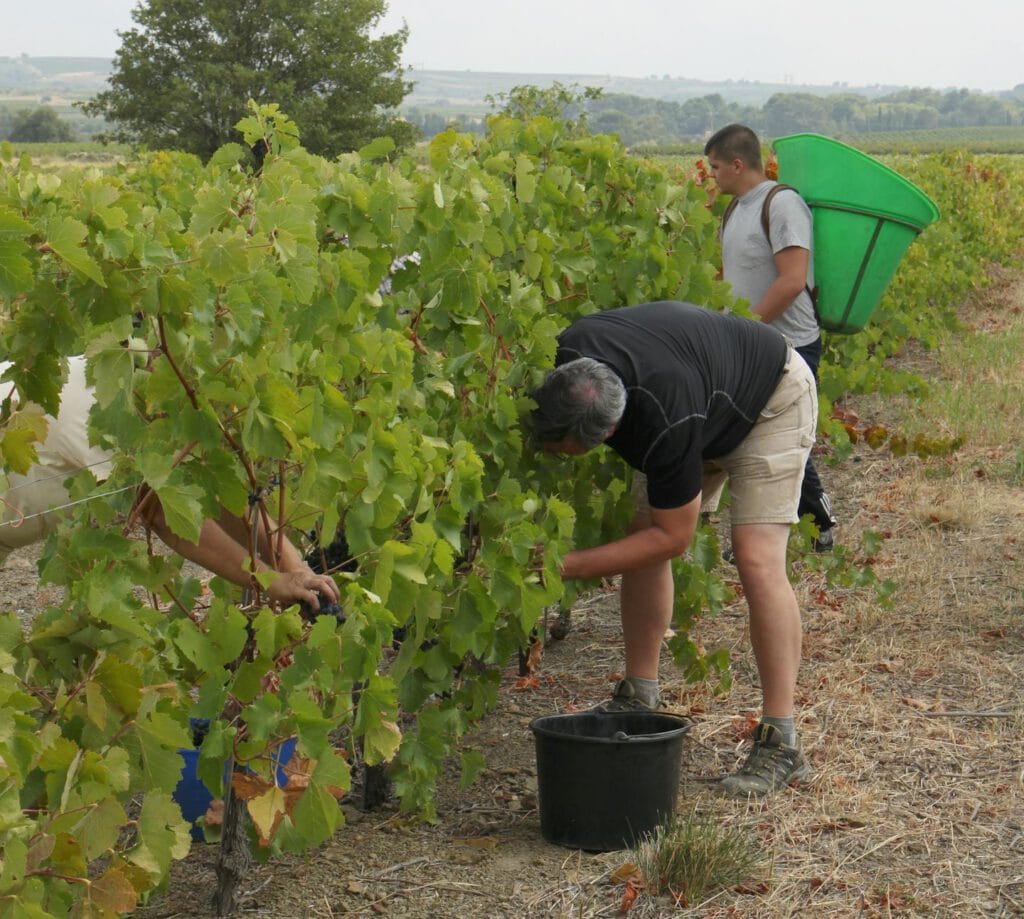
| Title | A Season for That – Lost and Found in the Other Southern France |
| Author | Steve Hoffman |
| Publisher | Crown |
| Date | Jul 09, 2024 |
| ISBN | 9780593240281 (Hardcover) |
| Pages | 368 |
| Excerpt | – google.com/books/edition/A_Season_for_That – youtube.com/watch?v=k4FjmBMEyJ4 |
| Audio | 10 hrs and 47 mins (read by the author) |
| Synopsis | In this poignant, delicious memoir, American tax preparer and food writer Steve Hoffman tells the story of how he and his family move to the French countryside, where the locals upend everything he knows about food, wine, and learning how to belong. |
| Review | Great read. Recommended |
About the Book
It is the story of my family’s gradual (then precipitous) acceptance into a tiny Languedoc winemaking village, of my bottom-up education in Mediterranean food and wine, and of a hard-won self-acceptance in mid-life (LinkedIn).
In the book, the story is condensed into a fall semester spent in 2012, recollected and told by Hoffman. The village is Autignac.

About Steve Hoffman
A Season for That is Hoffman’s first book. Articles have been published in Food & Wine, Artful Living, a.o.
- www.sjrhoffman.com/work
- www.facebook.com/sjrhoffman
- www.instagram.com/sjrhoffman
- www.linkedin.com/in/steve-hoffman-writer

The Minnesota Star Tribune
About Faugeres
Good wine is one of the reasons Hoffman came back to Autignac every year and the book describes his initiation into working in the vineyard and the cellar.

The key to understanding Mediterranean wines is ripeness. The simple fact is that here is a climate in which grapes reach full maturity. Think of a puckery green apple versus a sweet finished one, or a green versus a ripe tomato. Those same qualities of generosity, fleshiness, and voluptuousness, rather than the brightness and acidity of less-ripe fruits, are almost universally true of southern wines.
In Faugères, another important factor is the schist in the soil. A bit like Châteauneuf-du-Pape’s famous galets, or pebbles, these broken bits of stone conserve the heat of the day in the soil throughout cool evenings. The effects of soil type on a specific glass of wine may be up for debate, but in general schist produces deep color, with flavors tending toward black fruits, and an effect local winemakers describe as “roasted stone,” a sort of smoky minerality that contrasts beautifully with the natural velvetiness of mature fruit. – www.sjrhoffman.com/work/2023/8/13/falling-for-faugres
The author recommends
Faugères is a small appelation (1700 ha, 50.000 hl), mainly red (80%), mostly “dans le bio”.
- AOP Faugères – Grands vins de Nature
- www.faugeres.com/fr/une-appellation-dynamique/aoc-faugeres-chiffres
Stills
For the stills of Mary Jo, see
| Read | Dec 2024 |
| Format | Audible |
